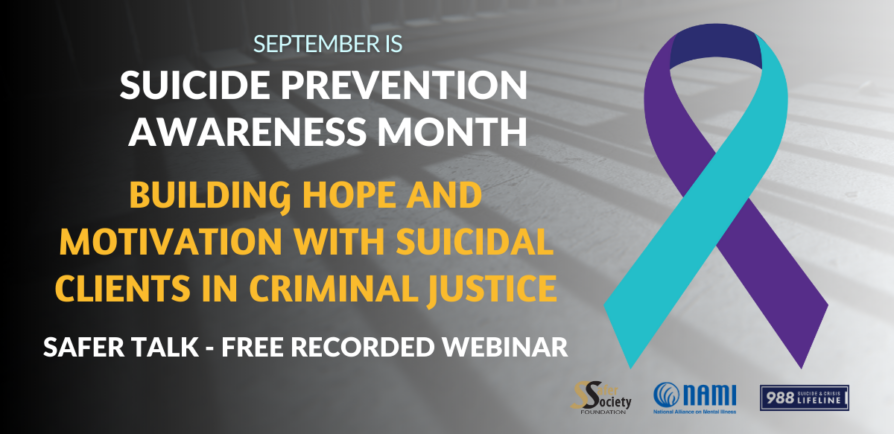Bill’s work has shed light on understanding and assessing abuse-related sexual interests, how and why treatment can work, the characteristics of effective therapists, and the importance of strengths-based treatment approaches. Those who studied with Bill quickly found that he personified the values and principles of the most effective scientist-practitioners. In this webinar, David Prescott interviews Bill and Liam Marshall, Bill’s son and long-time colleague, about Bill’s life and career.
47 Years of Treating Sexual Abuse by Juveniles: Who Are These Kids and How Do We Help Them?
In this online training, veteran author and practitioner Timothy Kahn provides education on how best to understand and help children and adolescents who have sexually abused. Drawing on nearly five decades of experience in the field, he reviews what all professionals need to know and why, drawing upon key recent research studies. He will first focus on “risk points” within adolescent development that can lead to abusing as well as discuss issues such as sexting, pornography, and the eroticization of children. Along the way, he will also discuss the necessity of self-care skills, including a healthy sense of humor. The training then focuses on understanding the course of treatment and secrets of effective group therapy, with extensive discussion of establishing professional boundaries.
Self-Care When You Need It Most
Global and local issues, as well as the aftermath of the pandemic, have affected professionals and clients alike. Professionals are providing services to disenfranchised people and populations while enduring unprecedented stressors. The presenters have a long history of studying self-care at the front lines of challenging environments and helping professionals to develop their skills in caring for themselves.
Risk and Treatment Assessment for Women Who Have Sexually Offended
The field of assessing women who have committed sexually motivated offenses continues to grow and evolve. The extant research literature provides an empirical basis for assessing women from a gendered perspective. This perspective is a person-centered strength-based approach that takes into consideration how gender affects patterns of offending for women (Pflugradt el al., 2018). As such, women who perpetrate sexually motivated offenses require risk and treatment assessment approaches that differ from approaches used with their male counterparts. This workshop provides empirically supported guidance related to assessing women who have committed sexually motivated offenses.
Supervision, Screen Time, and Safety: Community Management of Individuals with CSAM-Only Offenses
Individuals convicted of CSAM offenses have unique offense-related needs that differ from other offenders who have engaged in sexually abusive behaviors. Supervision and treatment professionals (including probation and parole officers) who work with these individuals need specific training to address their cluster of needs. This training offers specific skill-based interventions based on current research that supervision professionals can utilize with their clients during office visits. This training further discusses current research which can help inform policy and procedure around supervision of these individuals.
Culturally Informed Support for Black Women Survivors: The Safe Space Project
Although much has been written about surviving and thriving after abuse, there are very few resources for addressing the needs of Black women. Dr. Tyffani Dent begins this training by discussing the historical and current failures of victim services to meet the needs of Black women. She discusses the resulting mistrust of systems that claim to assist survivors. She then directly addresses the legacy of slavery and the myths about Black women that continue to cause harm and contends that the failure to attend to this history and these myths has consequences for treating survivors.
Understanding Intimate Partner Violence
Intimate partner violence (IPV) affects individuals across all walks of life. IPV is abuse or aggression that occurs in a romantic relationship. “Intimate partner” refers to both current and former spouses and dating partners. IPV can vary in how often it happens and how severe it is. It can range from one episode of violence that could have lasting impact to chronic and severe episodes over multiple years. IPV can include physical violence, sexual violence, stalking, psychological abuse and other forms of dominance and control. Physical injury, posttraumatic stress disorder (PTSD) symptoms,
Using the Becoming Who I Want to Be Workbooks for Adolescents with Problematic Behaviors
The Becoming Who I Want to Be workbooks for young men and women were designed for professionals working with youths with problematic behaviors toward others. The workbooks were written to be fun and engaging for clients whose adverse childhood experiences and problem behaviors have caused them to fall behind academically, socially, and interpersonally. Based on the Good Lives Model (GLM), the workbooks assist clinicians working with adolescents and young people whose behaviors have caused harm to others (including sexual and non-sexual violence).
How to Optimize Successful Sex Offending Treatment with the Road to Freedom Program
This four-hour training explores implementing a program based on the 4th edition of the workbook, The Road to Freedom, for people who have committed sexual offenses.
The RTF4 program is strengths-based, client-centered, trauma-informed, and based on the principles of risk, need, and responsivity. The training focuses on using the workbook in treatments that aim to reduce dynamic risk. Dr. Levenson further discusses the RTF4 sex offending treatment goals in the context of facilitating broader change in clients’ lives.
Motivating Suicidal Clients to Keep “Choosing Life”
There is perhaps no more critical time for helping professionals to listen to a client than when they talk about suicide. As a professional, you want to steer the client in a different direction. But is that the best approach? During the Safer Talk webinar Building Hope and Motivation with Suicidal Clients in Criminal Justice, guest speaker Natalie Cyr suggests that perhaps the best way to help those talking about suicide is to listen to their pain and offer to accompany them toward safety.









